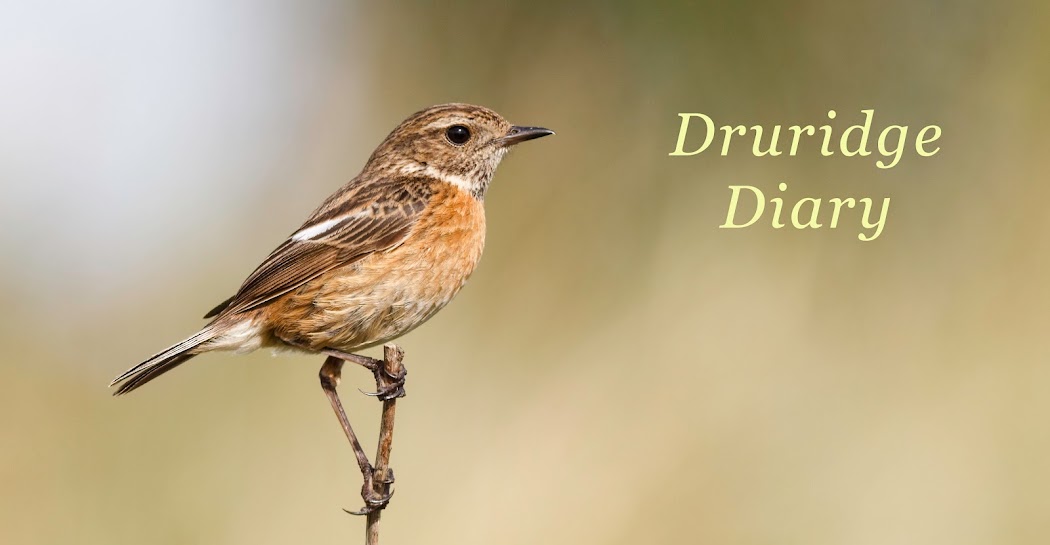So that was October.... It flew by - and now we're into November. Autumn is running out.
I've been scanning the pressure charts all week, things were changing, but by Wednesday afternoon I had decided to take Thursday off work. A good decision as the easterly wind and overnight rain brought a lot of migrants in. It wasn't a classic fall, or even a fall, but it was exciting.
A bright start gave way to a short spell of rain. Once that cleared, I got out for a proper wander. By now, thrushes were piling overhead, in flocks of about 70-100, mainly
redwings with a few
fieldfares. They were mostly high and just kept going west. Some of the later arrivals rested on top of the bushes for a while but were soon off, inland.There were a handful of
woodcock in the bushes, exploding out as walked through.
The forecast had been for strong winds, but they didn't materialise, so I could have had some nets up, but it was too late. It was unseasonably mild, 18 degrees C according to the car. There had been an influx of blackbirds, but no song thrushes and there were plenty of wrens, robins and dunnocks.
I saw my first
bullfinch of the year, just a fly-through,a male, piping as it went. Bullfinch is a scarce bird at Druridge, not annual by any means.
On the pool, there had been a inundation of
goldeneye, I counted at least 26 and six black-tailed godwits flew over calling.
No birding on Saturday due to the Toon being at home with an early kick-off which all led to a later start this morning.
There was still a couple of woodcock about and three song thrushes in the plantation were indicative of an over-night arrival. There were one or two redwings still and a handful of blackbirds, but they've mainly headed out west.
The
water rails have been very vocal the last few days, on the edge of the big pool by the
phragmites bed. I spooked one, a juvenile, which flew off without calling.
169 bullfinch
PWC Score 261












